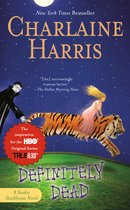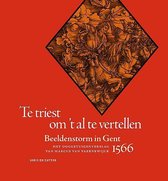A Modest Enquiry into the Nature and Necessity of Paper Currency
Afbeeldingen
Artikel vergelijken
Uitgever: Createspace Independent Publishing Platform
Auteur:
Benjamin Franklin
- Engels
- Paperback
- 9781499356137
- 04 mei 2014
- 24 pagina's
Benjamin Franklin
Benjamin Franklin's writings represent a long career of literary, scientific and political efforts over a lifetime which extended nearly the entire eighteenth century. Franklin's achivements range from inventing the lightning rod to publishing
Poor Richard's Almanack to signing the Declaration of Independence. In his own lifetime he knew prominence not only in America but in Britain and France as well.
Samenvatting
Benjamin Franklin (January 17, 1706 - April 17, 1790) was one of the Founding Fathers of the United States and in many ways was "the First American". A world-renowned polymath, Franklin was a leading author, printer, political theorist, politician, postmaster, scientist, inventor, civic activist, statesman, and diplomat. As a scientist, he was a major figure in the American Enlightenment and the history of physics for his discoveries and theories regarding electricity. As an inventor, he is known for the lightning rod, bifocals, and the Franklin stove, among other inventions. He facilitated many civic organizations, including Philadelphia's fire department and a university.Franklin earned the title of "The First American" for his early and indefatigable campaigning for colonial unity; as an author and spokesman in London for several colonies, then as the first United States Ambassador to France, he exemplified the emerging American nation. Franklin was foundational in defining the American ethos as a marriage of the practical values of thrift, hard work, education, community spirit, self-governing institutions, and opposition to authoritarianism both political and religious, with the scientific and tolerant values of the Enlightenment. In the words of historian Henry Steele Commager, "In a Franklin could be merged the virtues of Puritanism without its defects, the illumination of the Enlightenment without its heat." To Walter Isaacson, this makes Franklin "the most accomplished American of his age and the most influential in inventing the type of society America would become."Franklin, always proud of his working class roots, became a successful newspaper editor and printer in Philadelphia, the leading city in the colonies. With two partners he published the Pennsylvania Chronicle, a newspaper that was known for its revolutionary sentiments and criticisms of the British policies. He became wealthy publishing Poor Richard's Almanack and The Pennsylvania Gazette. Franklin was also the printer of books for the Moravians of Bethlehem, Pennsylvania (1742 on). Franklin's printed Moravian books (printed in German) are preserved, and can be viewed, at the Moravian Archives located in Bethlehem. Franklin visited Bethlehem many times and stayed at the Moravian Sun Inn.For many years he was the British postmaster for the colonies, which enabled him to set up the first national communications network. He was active in community affairs, colonial and state politics, as well as national and international affairs. From 1785 to 1788, he served as governor of Pennsylvania. Toward the end of his life, he freed his own slaves and became one of the most prominent abolitionists.His colorful life and legacy of scientific and political achievement, and status as one of America's most influential Founding Fathers, have seen Franklin honored on coinage and the $100 bill; warships, the names of many towns, counties, educational institutions, namesakes, and companies, and, more than two centuries after his death, countless cultural references. In 1736, Franklin created the Union Fire Company, one of the first volunteer firefighting companies in America. In the same year, he printed a new currency for New Jersey based on innovative anti-counterfeiting techniques he had devised. Throughout his career, Franklin was an advocate for paper money, publishing A Modest Enquiry into the Nature and Necessity of a Paper Currency in 1729, and his printer printed money. He was influential in the more restrained and thus successful monetary experiments in the Middle Colonies, which stopped deflation without causing excessive inflation. In 1766 he made a case for paper money to the British House of Commons.As he matured, Franklin began to concern himself more with public affairs. In 1743, he set forth a scheme for The Academy, Charity School, and College of Philadelphia.
Productspecificaties
Wij vonden geen specificaties voor jouw zoekopdracht '{SEARCH}'.
Inhoud
- Taal
- en
- Bindwijze
- Paperback
- Oorspronkelijke releasedatum
- 04 mei 2014
- Aantal pagina's
- 24
- Illustraties
- Nee
Betrokkenen
- Hoofdauteur
- Benjamin Franklin
- Hoofduitgeverij
- Createspace Independent Publishing Platform
Overige kenmerken
- Extra groot lettertype
- Nee
- Product breedte
- 129 mm
- Product hoogte
- 1 mm
- Product lengte
- 198 mm
- Studieboek
- Nee
- Verpakking breedte
- 129 mm
- Verpakking hoogte
- 1 mm
- Verpakking lengte
- 198 mm
- Verpakkingsgewicht
- 32 g
EAN
- EAN
- 9781499356137
Je vindt dit artikel in
- Categorieën
- Taal
- Engels
- Boek, ebook of luisterboek?
- Boek
- Beschikbaarheid
- Leverbaar
- Studieboek of algemeen
- Studieboeken
Kies gewenste uitvoering
Bindwijze
: Paperback
Prijsinformatie en bestellen
De prijs van dit product is 3 euro en 95 cent.
Verkoop door bol
- Gratis verzending door bol vanaf 20 euro
- Ophalen bij een bol afhaalpunt mogelijk
- 30 dagen bedenktijd en gratis retourneren
- Dag en nacht klantenservice
Bezorgopties
- Vandaag nog in huis (bestel ma-vr voor 12:00, bezorging tussen 17:00 en 22:00)
- Doordeweeks ook ’s avonds in huis
- Ook zondag in huis (bestel voor za 23:59)
Rapporteer dit artikel
Je wilt melding doen van illegale inhoud over dit artikel:
- Ik wil melding doen als klant
- Ik wil melding doen als autoriteit of trusted flagger
- Ik wil melding doen als partner
- Ik wil melding doen als merkhouder
Geen klant, autoriteit, trusted flagger, merkhouder of partner? Gebruik dan onderstaande link om melding te doen.









